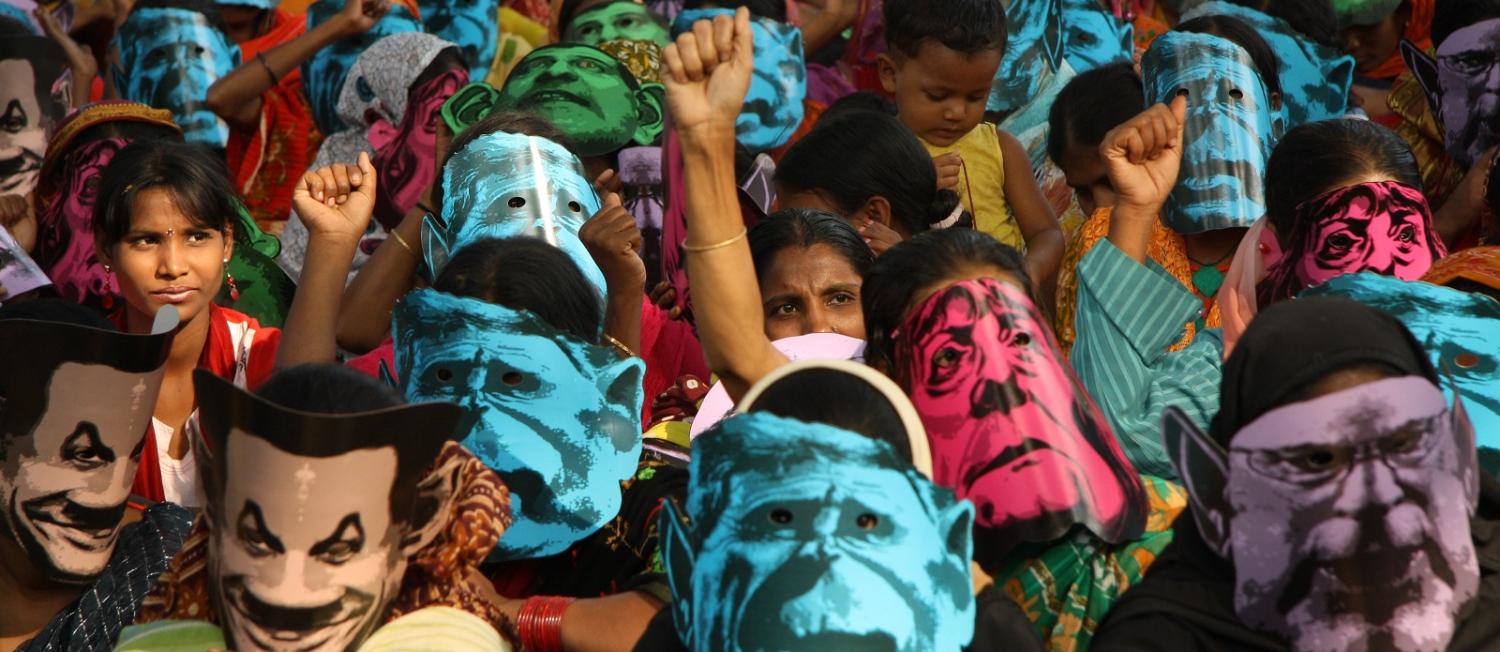At the start of a Global Security course I ask my undergraduate students what they think are the greatest threats to global security. This year I went a step further, surveying academic colleagues around the globe. The results were telling in terms of what was emphasised and what was missing.
The politics of security and threat
Different choices about whose security matters (from states to individuals to the biosphere) and different timescales (from the present to the future) encourage radically different choices of key threats, before we even try to rank threats when we agree on these categories. This is why I survey students, to help them recognise the analytical, political and ethical choices involved in defining security and prioritising certain threats. These choices clearly have implications at political level, as reflected in the often-drastic measures used to address key threats, from military force to blanket travel bans and from imprisonment of asylum-seekers to torture.
This got me thinking about how my academic colleagues viewed this issue. So I emailed 79 colleagues in politics and international relations departments across the world. While this was not a formal piece of research, the respondents met certain criteria in that all had published work on security and most offered courses on security at their institutions. Ultimately, I received 59 responses from 11 different countries.
What made the top four?
By a factor of three, the key threat to global security identified was climate change. For many, climate change constituted the most fundamental existential threat, especially if our focus is the global rather than the national. As one respondent put it, ‘the globe can survive most other things’.
At second place was poverty and inequality. Respondents noted the ongoing devastating effects of poverty and the effects of growing inequality on both life choices and the surge of destructive ideologies. On this score, nationalism finished a close third, with respondents pointing to the dangers of a world of states turning inward even while global action to address global problems (like climate change) seems more necessary than ever.
Rounding out the top four was USPresident Donald Trump. Here, the dangers of a President apparently willing to unravel the post-World War II global order and pick a fight with other major (and nuclear) powers was a matter of immediate concern for many respondents.
What didn't?
In some ways, the question of what was missing from the list of core global security threats follows naturally from the above. Interestingly, what wasn't nominated by the academics were the threats that have repeatedly been emphasised by the US President Trump (along with other leaders). No respondent to my survey cited terrorism. No-one identified Islam. And not one identified asylum-seekers, refugees or immigrants (except to point to the role of the refugee crisis in feeding an insular and aggressive nationalism). When assessed against the nature of current public and popular debates, and the recent statements of world leaders, you would be forgiven for thinking security academics lived on a different planet.
Grounds for hope?
While clearly not a systematic survey with a water-tight methodology, this exercise confirmed to me that informed and thoughtful experts continue to concentrate on the bigger picture of global politics, despite alarmist rhetoric and limited popular debate. Indeed, as the results attest, those advancing such rhetoric (and the forces that gave rise to them) are most likely seen as threats to security.
Asking smart people to reflect on key global security threats is not the most cheery exercise. But amidst the discussion of things that could kill us all were glimpses of hope. Respondents identifying apathy and fear as key threats reminded me of the capacity for human agency and resilience. We can challenge or contest the way security is used to justify illiberal measures, and through our actions (however limited) we can choose to recognise and respond to the suffering of others. It’s not all out of our hands.
But if smart people continue to focus on the bigger picture and give us grounds for hope, it doesn’t necessarily follow that this will inform the politics of global security. Indeed, if those respondents identifying the key global security threat as the assault on facts and reason- or the rise of populism - are anything to go by, perhaps the opinion of political science academics doesn’t mean a great deal. Except, perhaps, to our students.

